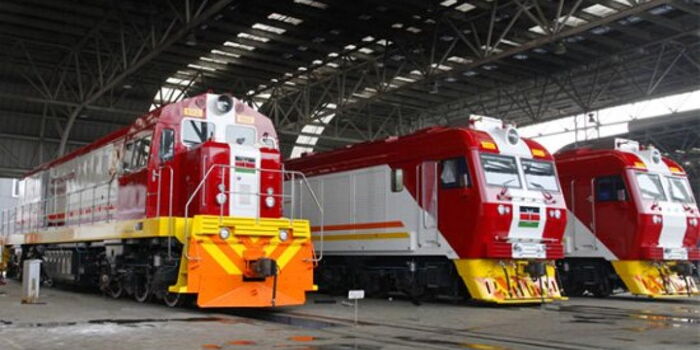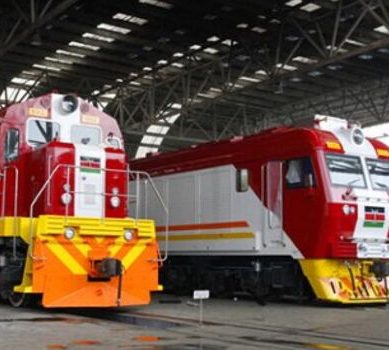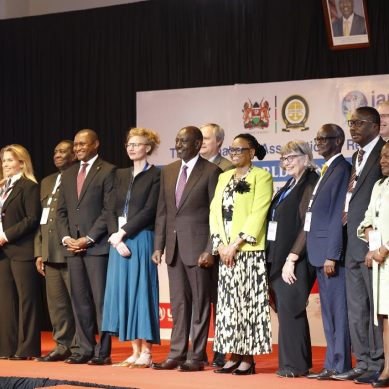
Financial experts have welcomed Kenya Railways’ plan to liquidate prime assets valued at Ksh16 billion (approximately $123 million) to clear long-overdue pension arrears, describing the move – championed by Managing Director Philip Mainga – as a bold, pragmatic and long-overdue intervention to stabilise the corporation’s pension scheme.
The initiative targets some of Nairobi’s most valuable properties, including Makongeni and Ngara estates. Makongeni in Nairobi’s Eastlands is valued at around Ksh8 billion ($61.9 million), while Ngara is expected to fetch between Ksh8 billion and KSh10 billion ($62 million to $77 million).
The proceeds will be channelled directly into the Kenya Railways Staff Retirement Benefits Scheme, which continues to struggle with liquidity gaps and delayed payments.
However, the timing of the disposal of the assets is raising eyebrows given the insatiable appetite for land in Nairobi by elements in President William Ruto government. Some of the assets in Nairobi’s high-end neighbourhoods like Upper Hill and Kilimani have already been grabbed by former civil servants who served in President’s Mwai Kibaki and his successor Uhuru Kenyatta governments.
There were also allegations of land-grabbing of Kenya Railways land by government officials in Naivasha, Molo and Mombasa.
Consequently, the plan by the Ruto administration, it is feared, is a discreet plot to acquire state-owned assets a throw-away price. A similar scheme was witnessed during the aborted discharge of Kenya Airports Authority (KAA) land to Indian investor, Adani Group. During the controversy, civil servants in the governments and president Ruto political allies were called out, forcing the government hastily
Appearing before the Senate Committee on Labour and Social Welfare, Mainga outlined a structured repayment plan running until January 2026. He also disclosed that the corporation is awaiting a crucial Ksh2 billion (about $15.5 million) payment from the Kenya National Highways Authority (KENHA) for land previously sold.
“We are waiting for KENHA to pay … about Ksh2 billion … that will enable us to clear the balances,” Mainga said, expressing confidence that the reforms will stabilise pension disbursements and restore confidence among retirees.
Kenyan financial experts have praised the move as both strategic and fiscally sound.
“This is a genius restructuring move by Mr Mainga,” said David Ndung’u, a Nairobi-based investment analyst. “Many state corporations sit on massive idle assets while struggling to meet obligations. Unlocking this value is long overdue.”
Another economist, Jacqueline Atieno, noted that the sale of non-core assets is a globally accepted turnaround strategy:
“Kenya Railways is essentially converting dormant real estate into active cash-flow that directly supports pensioners. It is practical and investor-friendly.”
Financial markets consultant Ken Muriithi pointed out that the decision sends an important signal to pensioners and the wider public, saying:
“When retirees go unpaid for years, confidence collapses. Mainga’s approach shows willingness to confront the crisis head-on rather than kick the can down the road.”
Despite the approval, Mainga pointed out legal constraints that prevent Kenya Railways from suing government agencies that owe it money, leaving asset liquidation as the most viable path.
“You know the law blocks us from taking other agencies to court for debt recovery, or auctioning of property to recover debt,” he said.
The Senate Committee urged swift implementation, with Kajiado Senator Samuel Kanar Seki calling for accountability and faster relief for pensioners.
“It is unfair that pensioners who served this country diligently have to wait for decades for their rightful dues,” Seki said, suggesting that debt-recovery firms be used to compel lagging state agencies to remit funds.
With prominent financial analysts describing Mainga’s strategy as “genius, necessary, and overdue,” Kenya Railways now faces the task of executing the asset sales efficiently to restore long-term stability to one of the country’s most troubled pension schemes.
- A Tell Media report / By a Tell Correspondent s







